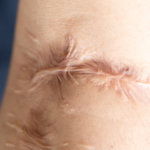
Lynch syndrome is a hereditary condition that increases the risk of developing cancer, such as colorectal and ovarian forms of the disease. Historically, the medical community categorizes Lynch syndrome as hereditary nonpolyposis colorectal cancer (HNPCC).
Studies show that an estimated 3 out of every 100 patients diagnosed with endometrial or colon cancer develop the disease as a result of Lynch syndrome. Developing LS typically causes affected individuals to experience an earlier onset of cancers than expected in the general populace.
Individuals suffering from LS experience a variety of symptoms related to their condition. Gastrointestinal issues, as well as problems with the pelvic region, are common and can point to signs of emerging cancerous tumors in these areas. People with gastroesophageal reflux disease, (GERD), or individuals that experience a frequent infection of the urinary tract should consult with their doctor for a diagnosis of Lynch syndrome.
Here are eight causes of Lynch syndrome, if you recognize any of them, contact your physician.
1. Risk Factors
Lynch syndrome carries several risk factors for developing the condition. The disease has a predisposition to affect those individuals prone to developing specific cancer types in the gastrointestinal and pelvic areas of the body.
Cancer reaches a critical stage when normal cells experience changes to their genetic make-up, allowing a tumor to form in the affected tissue. Tumors can either be malignant (cancerous), or benign (non-cancerous.) Malignant tumors can metastasize and spread to other regions of the body as well.
Individuals who suffer from Lynch syndrome have a significant increase in the risk associated with developing colorectal, (bowel), and endometrial (uterine,) cancer. Other areas of the body at risk of developing cancer due to Lynch syndrome are the prostate, pancreas, intestines, breasts, stomach, kidneys, and liver.
Lynch syndrome is one of the most common hereditary cancer syndromes. Studies show that as many as 1 in every 300-people may carry the altered gene contributing to the development of LS.


